Explore the 10 Best Lucida AI Alternatives for Advanced English Mastery
Lucida AI is a solid AI-powered language coach, but learners today have a wide spectrum of alternatives. Some platforms excel in real-life conversation, others in structured learning, while some balance both approaches.
Below, we’ve curated ten strong options that cater to different styles and goals.
Midoo AI – Personalized Agent-Led English Mastery
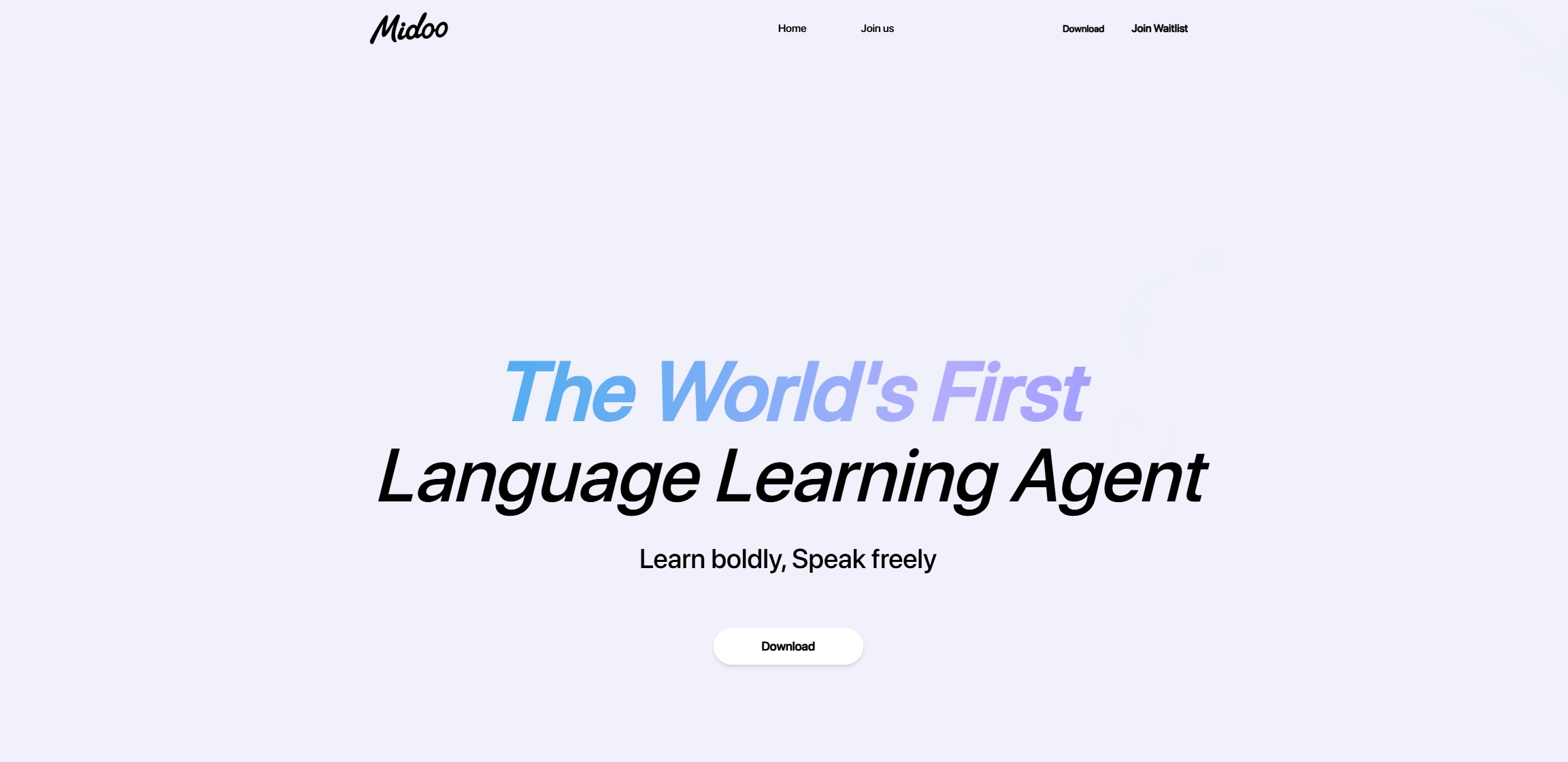
Midoo AI creates a full learning ecosystem rather than just offering scripted lessons. It evaluates your goals, prior habits, and weaknesses, then designs adaptive lessons that begin with targeted warm-ups. Each session feels relevant because it addresses recent mistakes directly.
Its conversation engine adjusts in real time, modifying tone, vocabulary, and difficulty. Learners can practice casual conversations, business negotiations, or unpredictable real-world dialogues. This agent-like interaction builds confidence and keeps practice realistic.
Between lessons, Midoo tracks performance trends, flags recurring errors, and schedules precise review sessions. This momentum-driven learning ensures skills are retained over time.
Pros:
- Full adaptive learning roadmap
- Real-time responsive conversations
- Role-play for realistic scenarios
- Long-term skill reinforcement
Cons:
- Focused mainly on English
- Consistent engagement required
Transform your English fluency with a personal AI mentor—start Midoo AI today.
TalkPal – Dynamic Dialogue Exploration
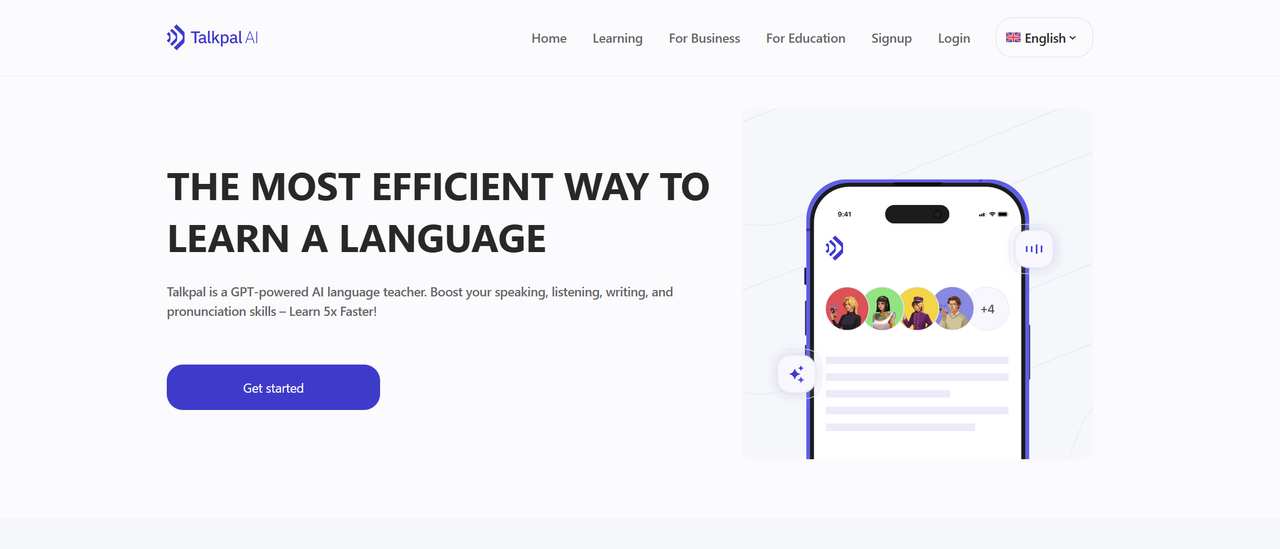
TalkPal specializes in interactive role-play, covering casual chats, debates, and professional conversations. Its flexible scenario engine encourages learners to engage naturally.
Instant feedback on pronunciation and vocabulary makes it effective for mid- to advanced learners. While structured paths are limited, it shines for real-world speaking confidence.
Pros:
- Wide variety of conversation types
- Immediate feedback on speaking
- Builds fluency and confidence
Cons:
- Structured learning paths are minimal
- Advanced options are fewer
Praktika – Immersive Scenario Learning
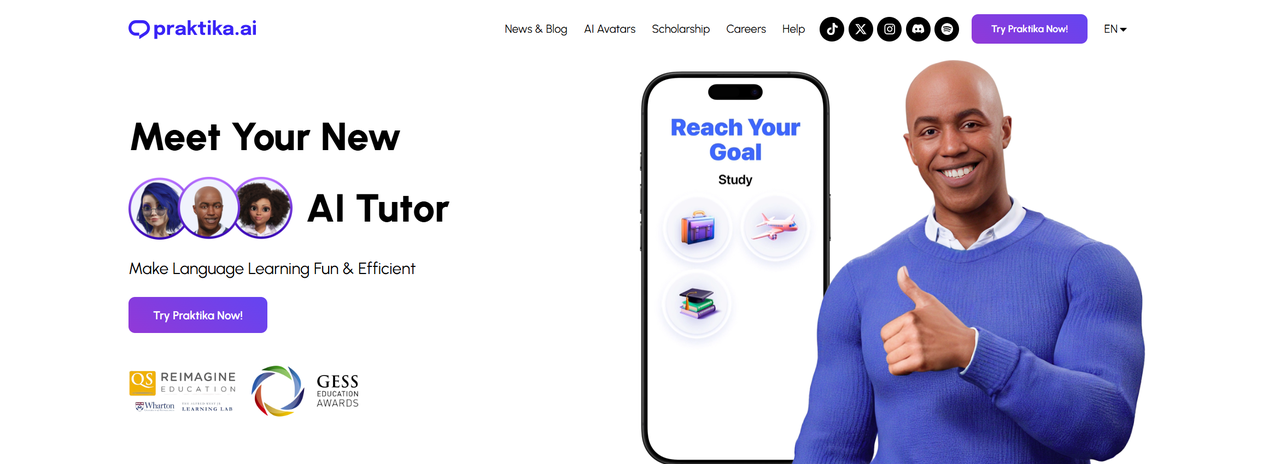
Praktika focuses on real-world simulations, including interviews, travel, and office meetings. Users interact with AI avatars in gamified dialogues that enhance engagement.
Ideal for learners prioritizing applied conversation over formal grammar, though some advanced learners may find depth limited.
Pros:
- Realistic, context-based scenarios
- Gamified exercises for motivation
- Emphasizes applied speaking
Cons:
- Limited grammar lessons
- Narrow advanced content
Speak – Pronunciation and Accent Refinement
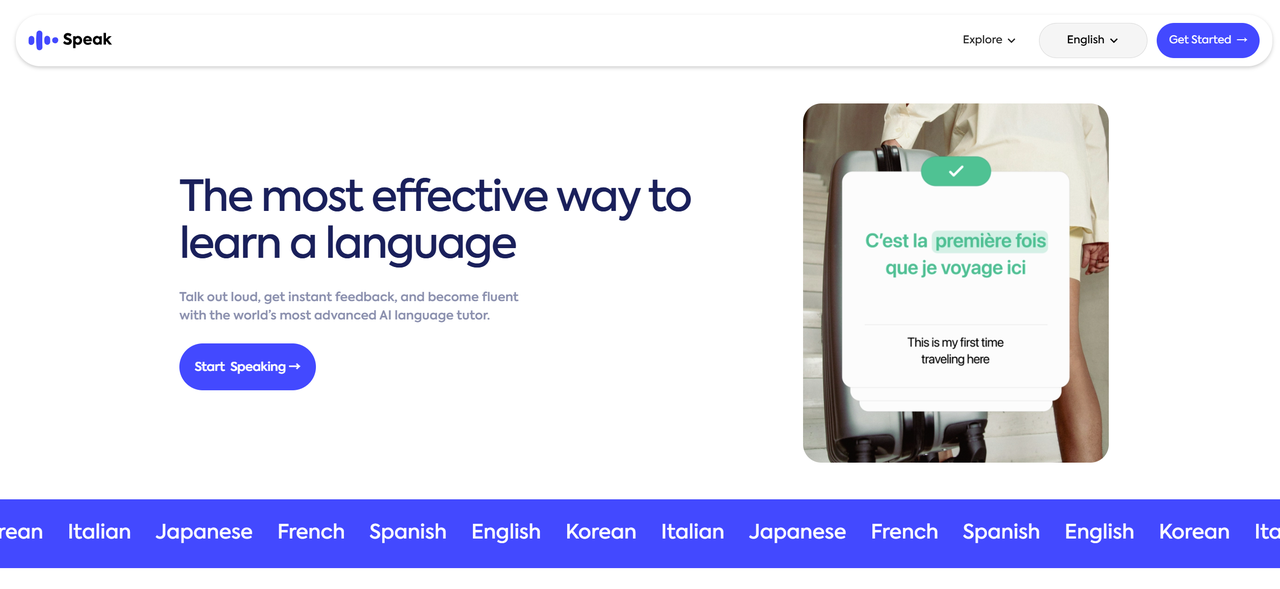
Speak is a pronunciation-first tool, offering drills for stress, tone, and intonation. Immediate scoring allows learners to track measurable improvements.
It’s perfect for learners focusing on spoken clarity, though exercises may feel repetitive for some.
Pros:
- Precise pronunciation feedback
- Accent improvement guidance
- Trackable progress
Cons:
- Limited scope beyond speech
- Repetitive exercises
Learna AI – Adaptive Knowledge Progression
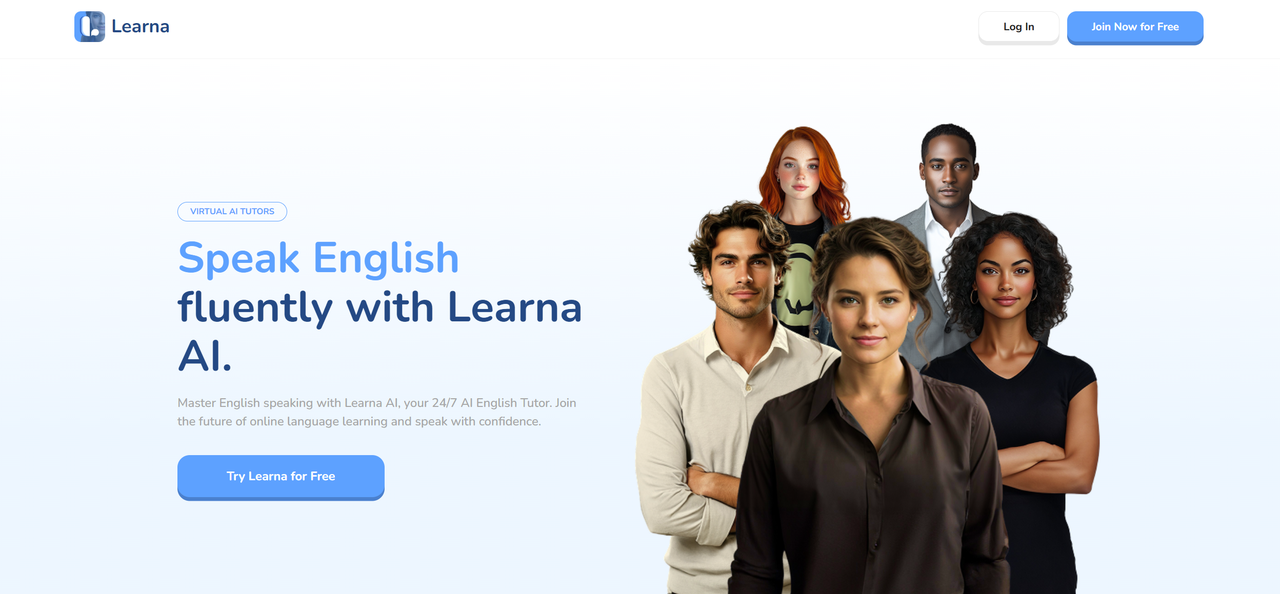
Learna AI combines structured lessons with adaptive exercises. Spaced repetition reinforces grammar and vocabulary, promoting long-term retention.
While consistent, it offers less freedom for spontaneous conversation compared to more flexible alternatives.
Pros:
- Personalized progression
- Spaced repetition for retention
- Interactive exercises
Cons:
- Limited spontaneous dialogue
- Less casual learning focus
Langotalk – Free-Form Conversational Practice
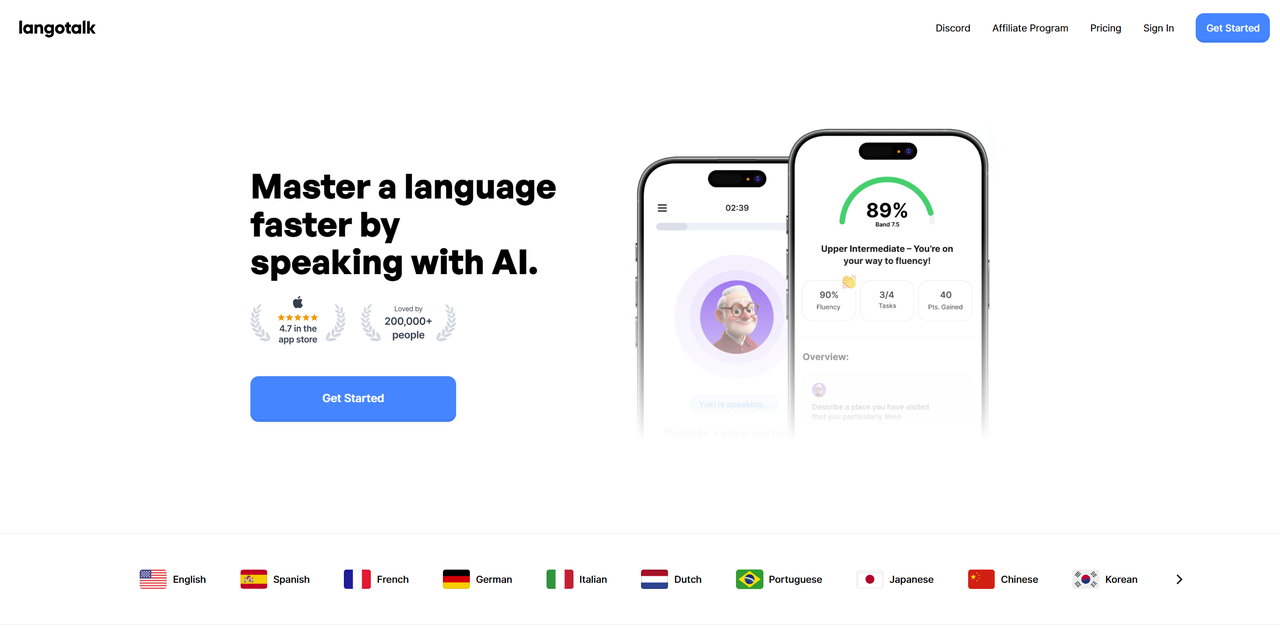
Langotalk focuses on unscripted, natural dialogues. Learners are encouraged to explore diverse topics, from casual daily chatter to situational business conversation, while AI offers gentle corrections.
The platform is highly flexible, supporting spontaneous speech development and encouraging learners to express themselves without rigid lesson constraints. This fosters natural fluency, especially for intermediate to advanced learners.
However, Langotalk offers limited grammar instruction, so learners may need complementary resources to strengthen formal structures. Its interface emphasizes speaking over written exercises.
Pros:
- Encourages natural speech
- Diverse topics
- Builds conversational confidence
Cons:
- Minimal grammar support
- Less structured learning path
Heylama – Micro-Learning Efficiency
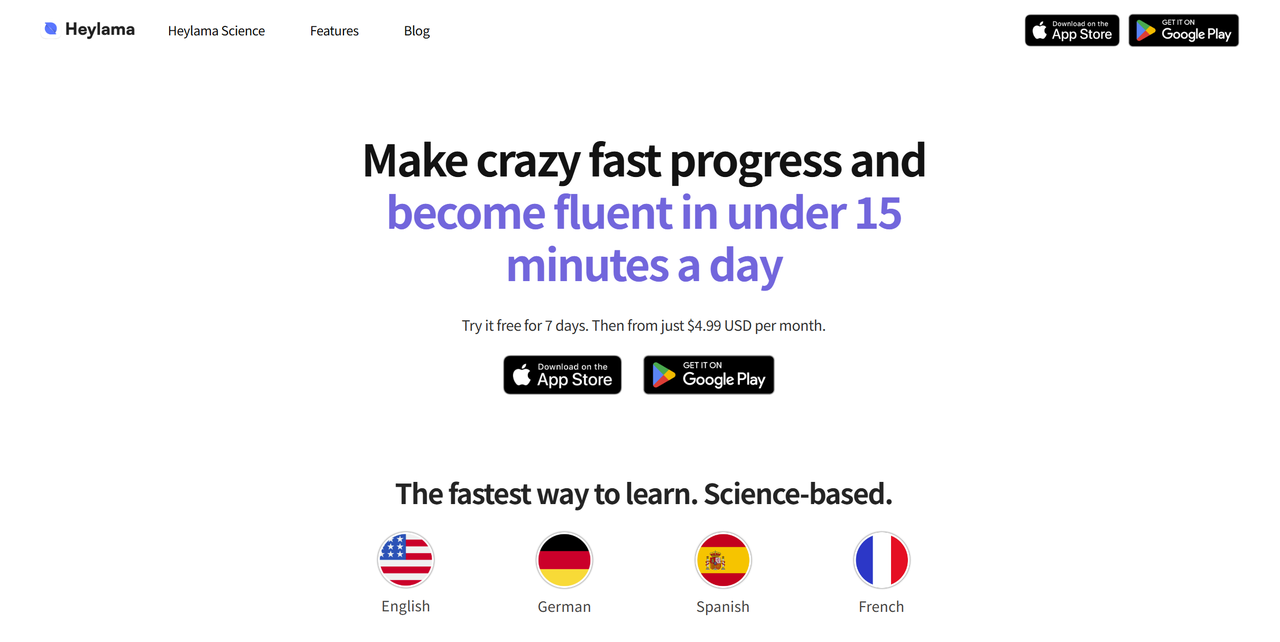
Heylama delivers bite-sized daily lessons, supporting busy learners with short, effective practice sessions. Active recall exercises enhance retention.
Best for those seeking efficient, consistent daily practice, though advanced learners may require additional depth.
Pros:
- Short, flexible sessions
- Active recall techniques
- Supports daily practice
Cons:
- Limited advanced content
- Less immersive real-life simulations
Twee – Gamified Social Learning
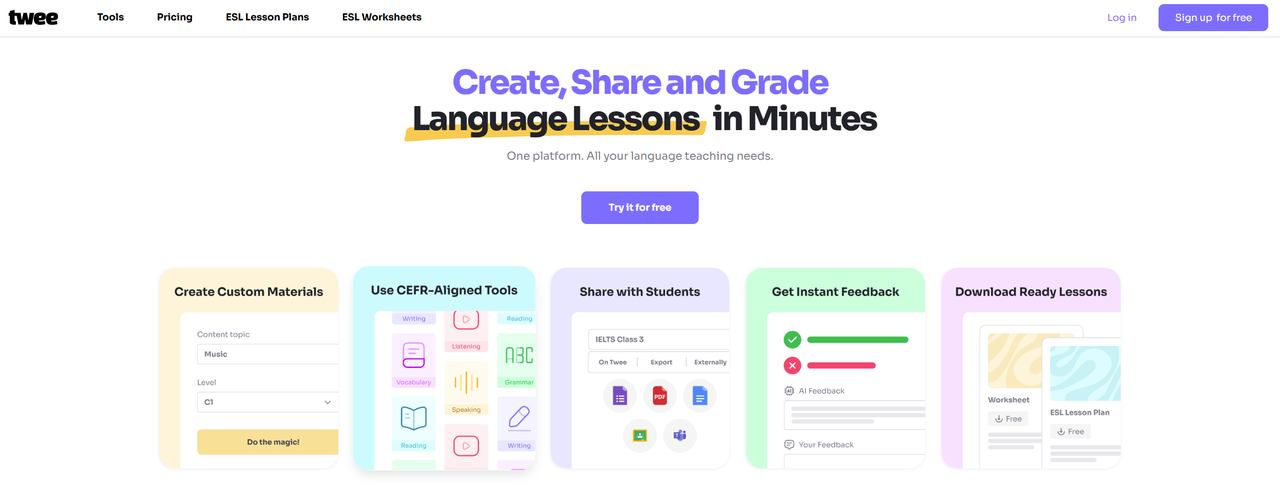
Twee combines AI learning with peer engagement, offering short challenges, interactive prompts, and friendly competitions. Gamification keeps learners motivated and accountable.
The system encourages learners to experiment with language in low-pressure settings, building confidence while having fun. Its hybrid approach appeals to social learners and those who enjoy community-driven accountability.
However, the content can lack depth, especially for learners seeking intensive grammar or structured skill development. The focus is on engagement and routine practice rather than full-spectrum instruction.
Pros:
- Gamified learning
- Peer interaction for motivation
- Quick, interactive sessions
Cons:
- Less academic rigor
- Peer quality varies
Gliglish – Quick Conversational Boost
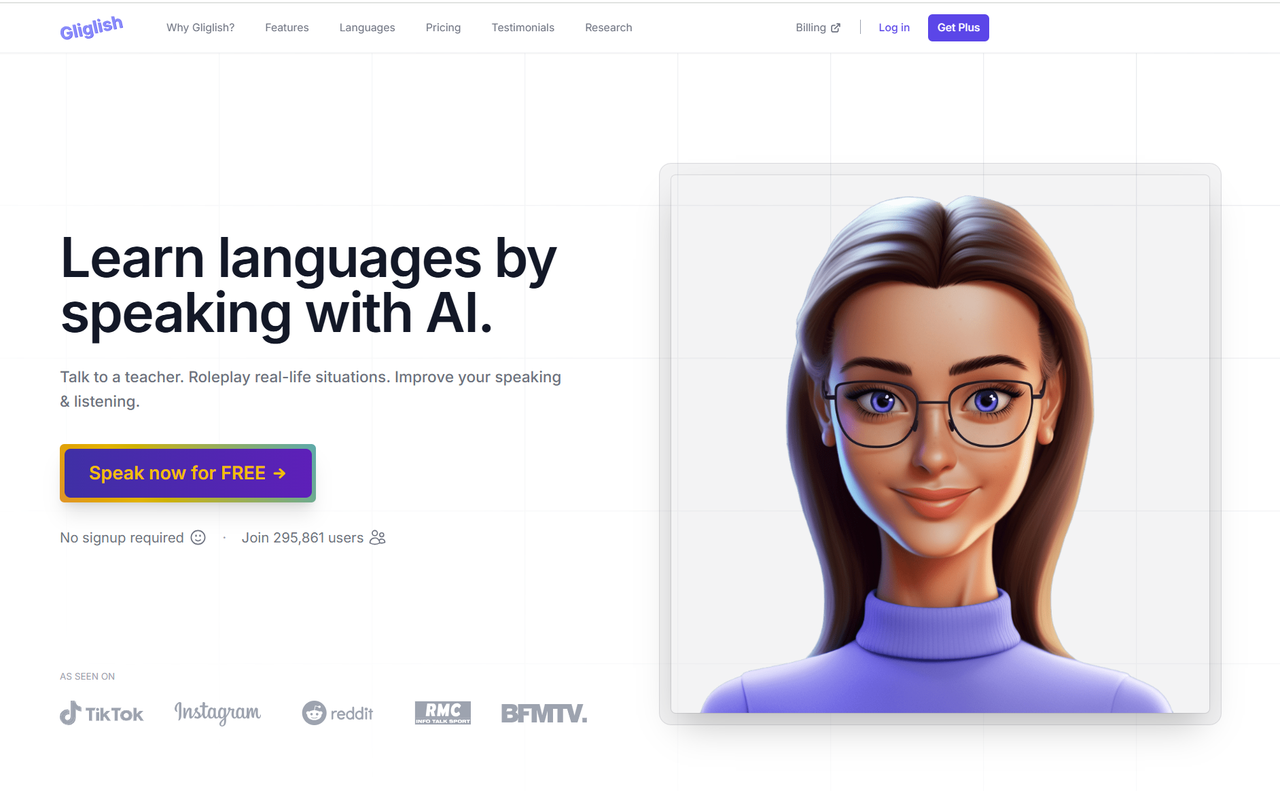
Gliglish emphasizes short, daily dialogue sessions, keeping learners engaged through simple, practical conversation practice.
It’s ideal for routine fluency reinforcement but provides limited advanced material.
Pros:
- Short, easy-to-access sessions
- Motivates daily engagement
- Focused on practical conversation
Cons:
- Limited advanced content
- Feedback is basic
Teacher AI – Structured Tutoring Experience
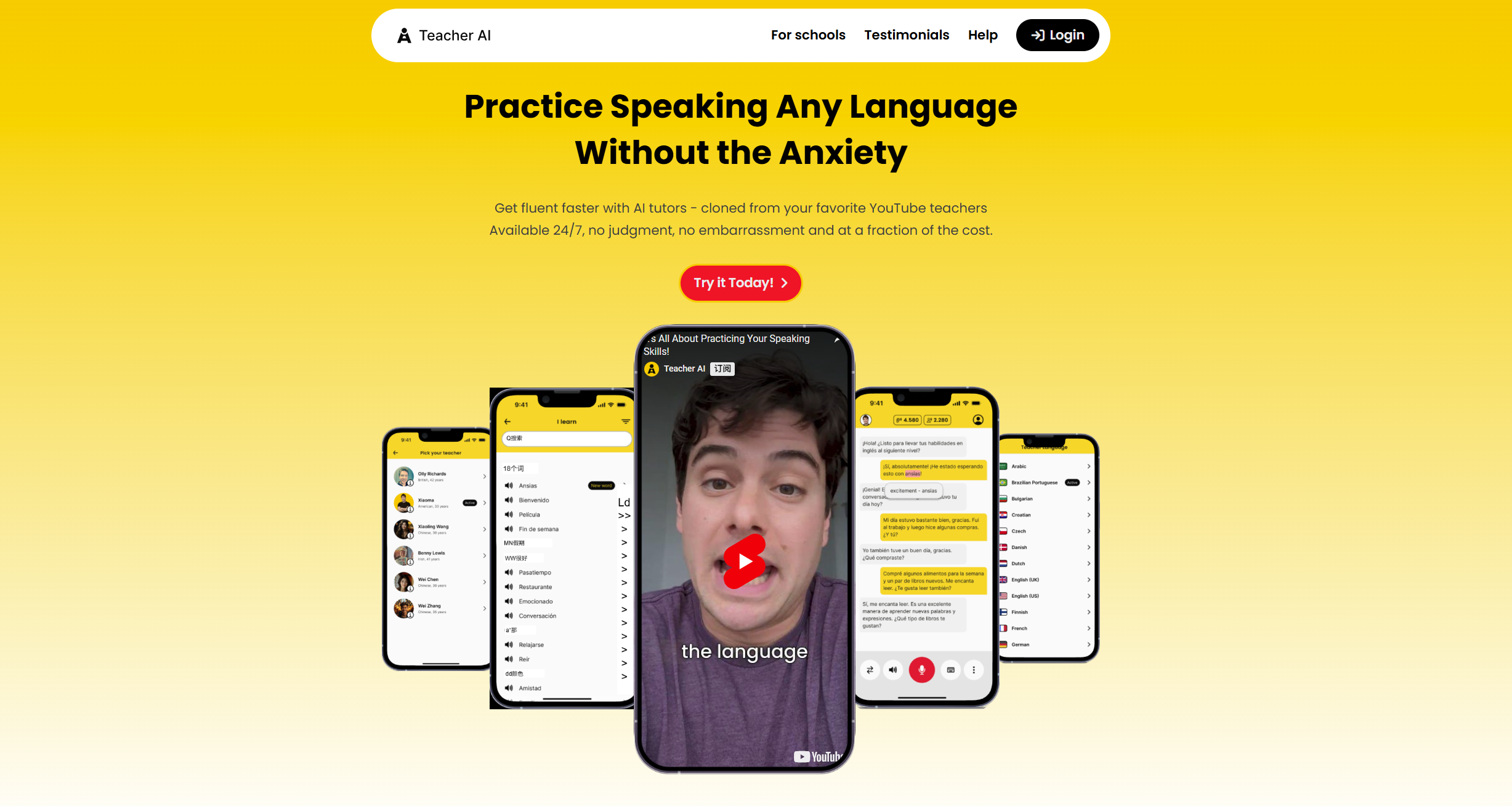
Teacher AI combines classroom-style lessons with AI-driven feedback, offering clear progression and explanations.
Perfect for learners seeking guided, academic-focused learning, though less suited for free-form practice.
Pros:
- Clear learning pathways
- Combines teaching and practice
- Structured guidance
Cons:
- Less flexible conversation
- Rigid compared to interactive tools
Conclusion
Lucida AI alternatives vary widely: some excel in structured progression (Learna AI, Teacher AI), others in real-world dialogue (TalkPal, Praktika), and some offer playful, micro-focused approaches (Heylama, Twee).
However, Midoo AI stands out as a comprehensive, adaptive, and agent-led solution. It combines personalized pathways, real-time conversation, and momentum-driven reviews, giving learners a dynamic, sustainable, and holistic learning experience.
Whether your goal is fluency, pronunciation, or conversational confidence, choosing the right tool makes all the difference. For learners who want a full-spectrum, evolving mentor rather than a simple app, Midoo AI provides unmatched guidance and results.